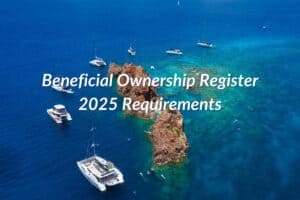Ontario Limited Partnerships (OLPs) offer a flexible and transparent business structure under the legal framework of Canada’s Ontario province. Designed for managing assets and investments, OLPs consist of General Partners (GPs) and Limited Partners (LPs) with distinct roles and responsibilities. GPs, typically corporations, handle the OLP’s administration, while LPs enjoy limited liability protection. In this informative guide, we explore the nature of OLPs, the significance of Limited Partnership Agreements (LPAs), succession planning for LP interests, Canadian and US regulatory requirements, and more. Whether you are considering establishing an OLP or managing an existing one, understanding the essentials of compliance is crucial for a smooth and tax-efficient operation.
Nature of Ontario Limited Partnerships
Ontario Limited Partnerships (OLPs) are established under the laws of the Province of Ontario, Canada. OLPs do not have legal personality and are treated as fiscally transparent in Canada.
The General Partner
The General Partner (GP) of an OLP is the managing partner, with the responsibility for the administration of the OLP, who can be a physical person but is typically a corporation for limitation of liability purposes. The GP will typically hold a 0.1% interest in the OLP. The owner of the GP entity may be the client directly, or a trust.
The Limited Partner
The Limited Partner (LP) of the OLP has limited liability, and is typically either the client directly or a trust. The LP will typically hold a 99.9% interest in the OLP.
Limited Partnership Agreement
The Limited Partnership Agreement (LPA) is the governing document that stipulates the terms of the partnership, the roles and responsibilities of the partners, and the division of assets upon termination of the OLP.
Succession of Limited Partner Interest
Where the LP interest in the OLP is held by a physical person and not by a trust, succession issues may arise on the death of the LP.
The limited partner may designate, in the LPA, the successor to his interest in the OLP, and the interest of the deceased will pass automatically to the successor designated in the LPA. However, a trust holding the limited partnership interests would offer a more complete solution.
Canadian Registrations and Filings
A Declaration (Form 3) must be filed with the Ontario Ministry of Government and Consumer Services under the Limited Partnerships Act. This Form is required to register the Ontario Limited Partnerships, and contains only the details of the OLP and its GP. There is no disclosure of LP identity information, which remains confidential.
If the GP is a US entity, it must file Form 6. If the GP is a foreign, non-US entity, then such company will be required to obtain an “Extra Provincial License” (EPL) to act as GP in an OLP, Form 1, and must appoint an agent for Service, Form 2.
Canadian Statutory Requirements
The Ontario Limited Partnerships must renew the Form 3 Declaration every 5 years, and must renew the GP registration documents yearly, Form 6 for US entities and Extra Provincial License for non-US foreign entities. The OLP is required to maintain a principal place of business in Ontario.
Books and Records
The GP is required to maintain books and records for the OLP, and must provide the LPs with a yearly statement of their Capital Account. In addition, the OLP is required to keep a record of the LPs, including names, addresses, percentage of interest, and amount of capital contribution.
Canadian Taxation and Reporting
Generally, Ontario Limited Partnerships that do not have their effective place of management in Canada, or that do not have Canadian source income, are not required to file Canadian tax returns. For CRS reporting purposes, OLPs will be considered to be resident in Canada if they have their effective place of management in Canada.
US Registrations and Filings
Where the GP of the OLP is a US LLC or corporation, it must file IRS Form 5472, with the name and address of the foreign shareholder.
IRS “Check the Box”
Ontario Limited Partnerships are foreign partnerships that are treated as fiscally transparent by the IRS. Where OLPs hold US situs assets, such as US securities or real estate, to avoid US estate tax, OLPs should file IRS Form 8832, having “checked the box” to treat the OLP as a foreign corporation.
Disclaimer
CISA Trust is not a legal or tax advisor, and this information is not offered as tax advice.




